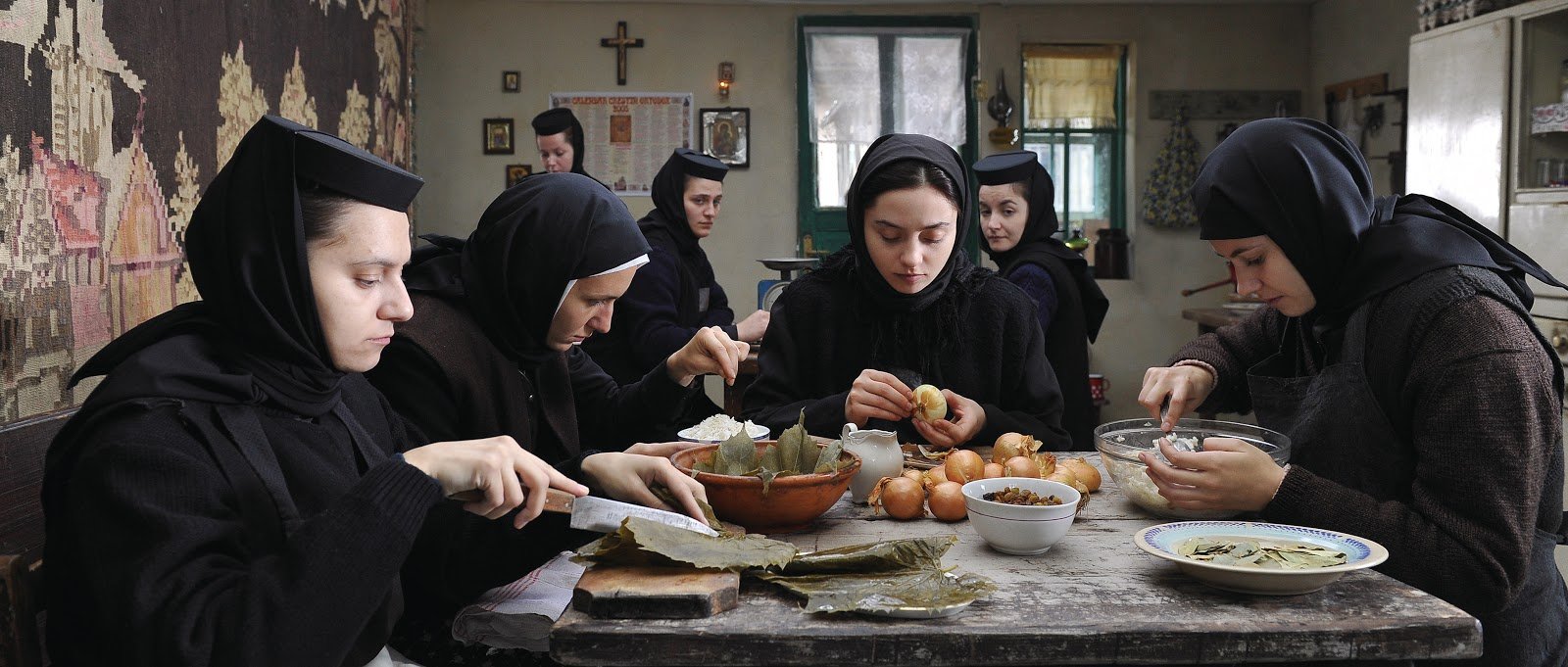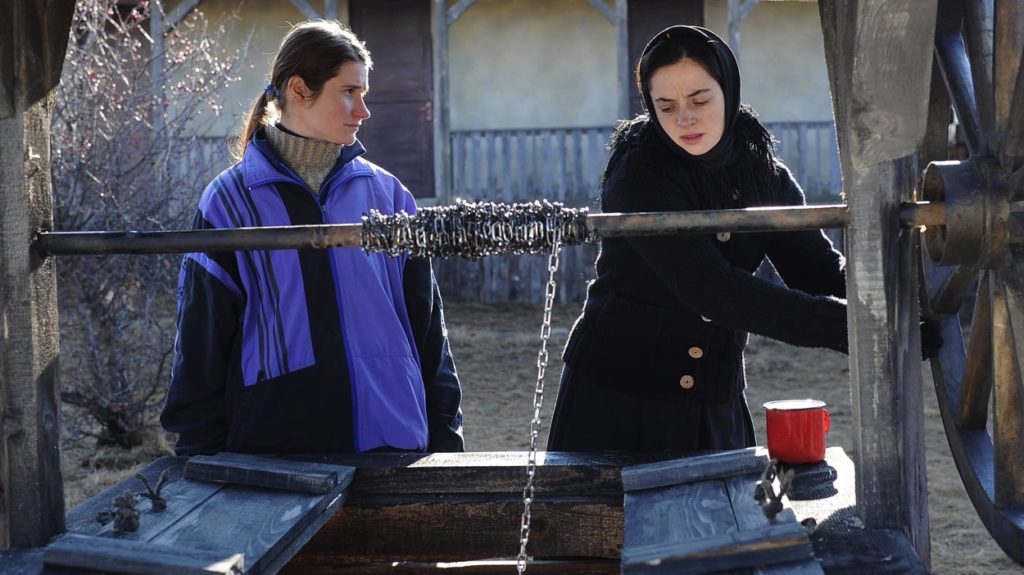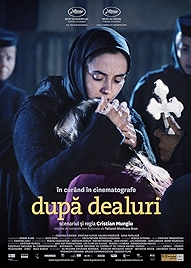The Romanian director Cristian Mungiu’s most well known film to date, 4 Months, 3 Weeks and 2 Days, followed a pair of student girls in 1980s Bucharest into a grubby hotel where a back-street abortionist first took their money, then demanded further payment, of a sexual kind. After he’d had his way, and then performed his grisly termination, the two girls went down to the hotel restaurant, where the only food on offer was a plate of all-too-reminiscent offal, blood sausage and cold cuts of meat.
Roll end titles, and up came a credit stating that the film was from the series “Tales from the Golden Age”. It’s this sort of gruesome black humour that marked out Mungiu as a man to watch, a director in the Billy Wilder vein who clearly had no truck with the idea that in the old days, which means under the iron regime of Ceausescu in Mungiu’s case, things were fun.
His latest film also follows two young women on a grim journey but this time his focus and intention are quite different.
It’s 2007 and a pair of girls who grew up together in a children’s home are reunited. Voichita (Cosmina Stratan) is visiting from Germany, where she’s being doing comparatively well paid barwork. She stays with Alina (Cristina Flutur), now a novice nun at a severe monastery where attitudes to life and the world don’t appear to have changed much since medieval times.
If 4 Months, 3 Weeks and 2 Days was political satire with a stone face, this is something more ambitious still – an attempt to get into the mindset of people we don’t understand and then to explain their actions from their own perspective.
I say actions because something happens to one of the girls while she’s there, something rather horrible and it keeps on happening, until everything has gone way too far to be justifiable, unless that’s God’s unequivocal intention.
The two rather charming young women have an almost animal attachment to each other which says more about the way they were mistreated as orphan children than any number of flashbacks might have done. Mungiu’s main concern, however, is less on Voichita and Alina than on the devout adherents of the simple strenuous life up on the mountain.
Powell and Pressburger did something almost similar in Black Narcissus in 1947, showing us from inside the nunnery how sexual frustration and its sublimation could bend a wimple way out of shape. Here it’s religious devotion itself that’s under consideration and the old Catholic idea that the life of the flesh isn’t just a pale echo of the life of the spirit but contrary to it. The life carnal belongs to the devil. So a girl who’s been working as a barmaid… maybe a bit of dancing…?
In this attempt to lock into the religious mindset Mungiu is close in tone to the powerful German film Requiem, from 2006, which followed a psychologically frail girl through a series of harrowing exorcisms.
I’m trying to avoid spoilers though there’s more to this film than the plot itself. Eloquently collaged in terms of mood, of slow static-camera shots, it’s a beautifully realised representation of a world few of us will be familiar with. In spite of the fact that it’s 2007, Mungiu’s intention is to explain the rationale of people who, to all intents and purposes, live in a pre-humanist world driven by religiosity. There is no 21st century insistence on civil rights, democracy or personal liberty.
It’s an ambitious thing to try to pull off and Mungiu gets most of the way there. But he has two problems. First, all that filigree description necessary to construct a world that really does need building for us, it’s the enemy of gripping drama. Second, Mungiu kind of cheats when it comes to the actual nub of the film – who did what to whom, and did they realise exactly what they were about? As in The Reader where we were never told just how much of a Nazi Kate Winslet’s character was – that way lies the death of sympathy for our “hero” – Mungiu does something similar here, withholding information that would otherwise allow us to make a decision one way or another, right or wrong, but a decision all the same. Without it, we’re groping.
I’m bending over backwards to stay out of spoiler territory, probably to the point where I’m making things totally confused. What I’m trying to say is that the director, one of the best in Europe today, does eventually grind himself to a halt. But it’s a hell of a halt, and a hell of film. At 30 minutes shorter it would probably be a masterpiece.
Beyond the Hills – at Amazon
I am an Amazon affiliate
© Steve Morrissey 2012


